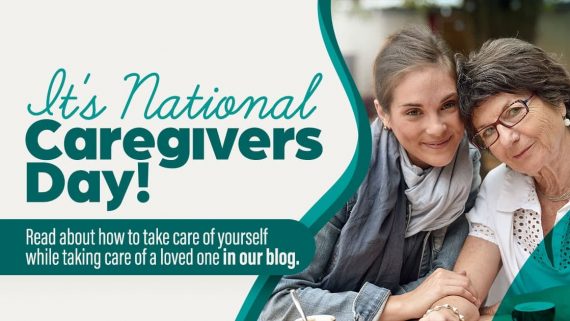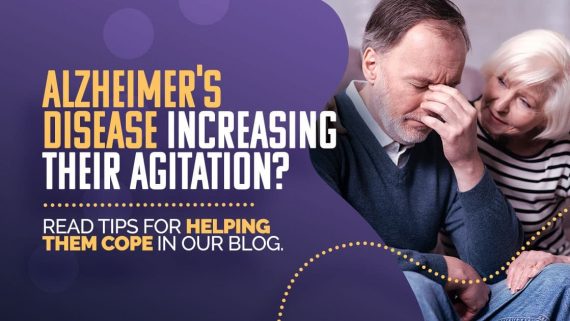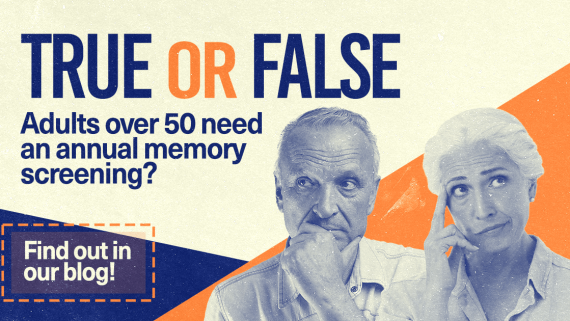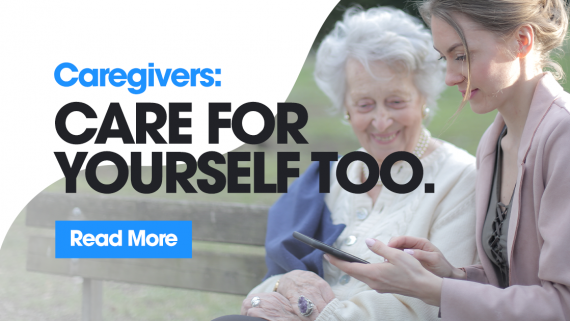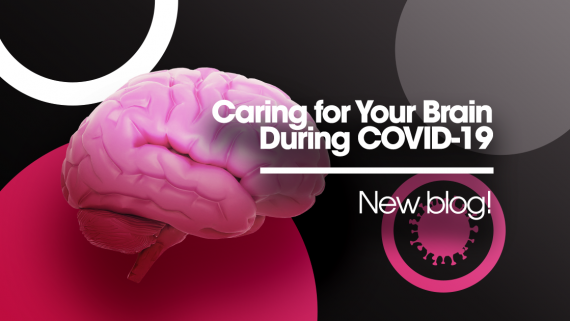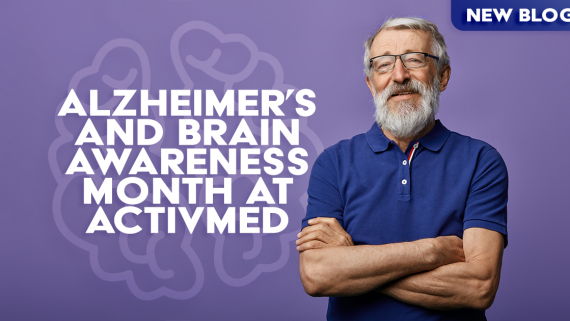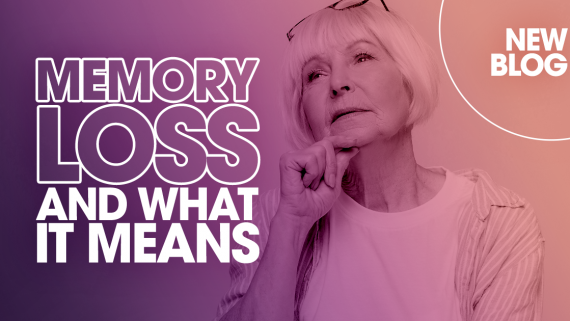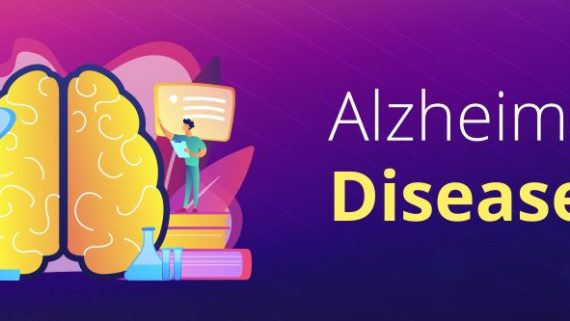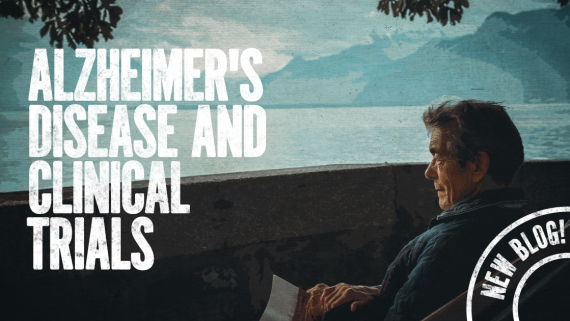Did you know that nearly 66 million Americans serve as caregivers to their parents and other loved ones? February 18th is National Caregivers Day, and in honor of our caregivers, we are shining a light on their work and exploring the different ways we can show them our appreciation.
What Does a Caregiver Do?

A caregiver is a paid or unpaid member of a person’s social network or a healthcare provider who helps them with activities of daily living. There are different types of caregivers. The types are family caregiver, professional caregiver, independent caregiver, private duty caregiver, and informal caregiver. Here is a list of duties that a caregiver might engage in during a typical month::
- Six days a month they spend grooming, feeding, dressing, bathing, and walking.
- 13 days a month they spend commuting, cleaning, doing the laundry, monitoring medication, shopping, and cooking special meals for a loved one.
- 13 hours a month are spent coordinating visits with physicians, researching symptoms and diseases, and managing finances.
Honoring Caregivers
While National Caregivers Day is the perfect time to acknowledge the dedicated individuals who work as caregivers, it shouldn’t end there. Showing your appreciation throughout the year with just a simple “thank you” can help lift the spirit of these individuals who work tirelessly to provide high-quality care to the loved ones in your life. You could even thank them over a simple note, letter, or email. Show your support on social media and use the hashtags, #thankacaregiver and #nationalcaregiversday, to share your story. A small gift to your family caregiver(s) would be an excellent idea, too. Here are some suggestions:
- Books (affirmations, mindfulness)
- Gift cards to their favorite store
- Baked goods
- Hand creams, aromatherapy diffusers, or other bath and spa related products
- Donation to a worthy cause in the name of the caregiver

If your loved one has been diagnosed with Alzheimer’s disease, clinical research studies may be an option. Research studies help advance prevention and treatment opportunities for Alzheimer’s and other chronic conditions. To learn more about our enrolling Alzheimer’s studies at our Lawrence, MA location, click here or call us at (978) 655-7155.
Sources:
https://www.nahc.org/national-caregivers-day/
Alzheimer’s disease is a progressive neurodegenerative disorder. It initially causes forgetfulness that advances to severe memory and thinking impairment. Individuals with Alzheimer’s typically experience behavioral and psychological symptoms, such as agitation, increasing the burden on the caregiver. If your loved one is experiencing Alzheimer’s disease with signs of agitation and is struggling to cope, here’s what you need to know.
Agitation with Alzheimer’s Disease Is Common
Agitation is a common behavioral symptom that most patients with Alzheimer’s will experience. They may feel restless, causing a need to move around and pace, become upset in certain places, or when focused on specific details. The signs of agitation include:
- Rapid, exaggerated changes in mood
- Restlessness
- Irritability
- Aggression
Agitation is distressing and debilitating, causing significant negative consequences for patients and caregivers. Hence, it is one of the most common reasons patients with Alzheimer’s transition to nursing homes and other long-term care settings.
How to Cope and Make History in the Treatment of Agitation with Alzheimer’s Disease
If your loved one has Alzheimer’s and is showing the signs and symptoms of agitation, contact their doctor immediately. Their provider can identify other potential causes, such as underlying health conditions, circumstances, and medication interactions, and determine the best possible treatment path.
Steps you can take to reduce or prevent agitation include:
- Remove stressors – Create a calm environment, reducing noise, clutter, and the number of people present at a given time.
- Keep a routine – Set a schedule for bathing, dressing, and eating meals at the same times each day.
- Be calm- Speak calmly, listen to their concerns, and provide reassurance. Ensure their personal comfort needs are met for fatigue, hunger, skin irritations, digestive issues, etc.
- Help them feel secure – Keep familiar objects and photographs of friends and family around the house.
Furthermore, caregivers may need help with coping. To help ease the impact of caring for a loved one with agitation and Alzheimer’s disease, you can:
- Make your health a priority. Keep your regular appointments, get enough sleep, and eat healthy foods.
- Take time each day to do something you enjoy.
- Talk with other family members about stepping in, so you can get a break. It may even be helpful to look into respite options in your area.

Currently, there are no therapies approved by the FDA to treat the signs and symptoms of agitation in patients with Alzheimer’s disease. However, every FDA approval of new medicine starts with a clinical research study, as they provide the key tools used to find better ways to treat, detect, and prevent medical conditions.
ActivMed Practices & Research is currently looking for individuals to join a research study looking into new options for the treatment of Alzheimer’s. If your loved one experiences agitation with Alzheimer’s disease, please contact our location in Lawrence, MA to learn more at (978) 655-7155 or visit our website today!
Sources:
https://www.alz.org/help-support/caregiving/stages-behaviors/anxiety-agitation
https://www.nia.nih.gov/health/coping-agitation-and-aggression-alzheimers-disease
Family members are the primary source of support for older adults and people with disabilities in the U.S. Nearly half of all caregivers are over age 50. The significant emotional, physical, and financial toll caregiving can take means that many are vulnerable to their own health declining. In fact, managing mental health as a family caregiver is one of the support services highlighted during National Family Caregivers Month. As we recognize and honor the contributions of caregivers, let’s make sure we take care of them, too.
Engage, Support, and Empower
This year, National Family Caregivers Month builds upon the continued resilience of the care partner community. Over the past year, caregivers have taken on added responsibility to keep themselves and their loved ones safe from COVID-19. With this ever-mounting burden, many may have forgotten to address their own mental and physical well-being.

Alzheimer’s disease is called a family disease because watching a loved one slowly decline creates chronic stress that affects everyone. Nevertheless, it’s important for caregivers to focus on their own needs, take time for their own health, and get support and respite from caregiving regularly to sustain their well-being during this journey. Emotional and practical support, counseling, resource information, and educational programs about Alzheimer’s disease help a caregiver provide the best possible care for a loved one.
You can celebrate National Family Caregivers Month by:
- Taking a free mental health assessment if you are struggling with your own mental health
- Making sure you are taking breaks to rest and enjoy the things you love
- Keeping up with your regular doctor appointments
- Sharing your caregiving story utilizing the hashtags #CaregiverAnd, #FamilyCaregiver, #Caregivers, and #NFCMonth
- Utilizing online and local resources for support
The Vital Role of Caregivers in Dementia Research
Caregivers provide many vital roles when it comes to their loved ones. They are often the first to notice changes in symptoms and behaviors, attend doctor’s visits, and are responsible for communicating with other family members. Clinical research studies offer an opportunity for caregivers to help their loved ones leave a lasting legacy that impacts future generations of individuals with Alzheimer’s or other dementia.

ActivMed Practices & Research offers FREE baseline memory screenings and Alzheimer’s disease research studies that are currently enrolling. To learn more about setting up a free screening for you or a loved one or about our enrolling studies, call (978) 655-7155 or visit our website today!
Sources:
https://acl.gov/news-and-events/downloads-and-multimedia/NFCM
https://www.caregiveraction.org/national-family-caregivers-month
https://www.census.gov/newsroom/stories/family-caregivers-month.html
This year, National Health Education Week takes place from October 18th through the 22nd. Its purpose is to celebrate the role public educators play in increasing awareness of major public health issues. To commemorate this occasion, ActivMed wants to remind readers about our FREE baseline memory screenings. When it comes to brain health, memory screenings are a great first step.
What is a Baseline Memory Screening?
A baseline memory screening is a series of questions and tasks designed to test memory, language skills, thinking ability, and other intellectual functions. It’s a simple, safe, and quick way to determine your brain health. The screening doesn’t diagnose anything, but it can determine whether or not you would benefit from a full evaluation. The results are given to you right away and can also be sent to your doctor if a follow-up is a recommendation.
The short answer is yes. While some individuals are at a higher risk, anyone can develop Alzheimer’s or other dementia. As we get older, the brain changes, and memory loss and other issues become more common. But how do you know when your memory issues are more than age-related? Memory issues that disrupt your daily life are among the top 10 warning signs that The Alzheimer’s Association lists as reasons to consult your doctor immediately. These include:
Is a Memory Screening Right for You?
- Repeating the same question over and over
- Confusion with time places
- Difficulty completing familiar tasks
- New problems with speaking or writing
Other underlying medical issues and other factors can also cause memory issues. Hence, why you should always get checked out if experiencing any of these symptoms. Treating the underlying cause often improves symptoms.
Added Benefits
The National Institute of Health is now recommending everyone 50 years of age or older gets a baseline memory screening followed by annual memory exams to watch for cognitive changes. You can alleviate any concerns if the screening is negative. If positive, you can take steps that may result in the opportunity to play an active role in:
- Creating or updating advance directives and planning long-term care.
- Ensuring support services and a care network are put in place to help with future medical, legal, and financial concerns.
- Working with caregivers to develop strategies to improve quality of life, make safety modifications for the home, and manage emotions related to the dementia diagnosis.

National Health Education Week is October 18th-22nd. To schedule your FREE baseline memory screening, call us at 978-655-7155 or fill out a request form online today!
Sources:
https://www.nchec.org/NHEW2021
https://www.nia.nih.gov/health/assessing-cognitive-impairment-older-patients
Alzheimer’s is a progressive disease that impairs memory and many other essential mental functions. Although the changes are more subtle at first, eventually those diagnosed will need the help of a caregiver to perform their daily tasks. In many cases, the caregiver is a loved one or family member that volunteers to support them. Being a caregiver can be physically, emotionally, and mentally draining. Learning to care for yourself is the best way to ensure you will be there to care for your loved one.
From Care Partner to Caregiver and Burnout
In the early stages of Alzheimer’s, many function independently, and your role is more of a care partner who will help support and plan for the future of your loved one. As the disease progresses, their reliance on you will continue to increase until they need you 100%. Navigating the physical and emotional ups and downs of this journey can test even the most patient souls. It can be all-consuming, and just like any fire, it will eventually burn itself out.
Approximately 15 million Americans provide unpaid care to an older adult. Those that provide substantial care are more likely to have physical and emotional health issues. Caregiver burnout is real and can snowball over time. Recognizing the signs of burnout can help you get the help you need to continue providing the best care possible.
Signs of Caregiver Burnout:
- You have much less energy and always exhausted
- Increasingly impatient and irritable with who you are caring for
- Neglectful of your own needs
- You get sick more often
How to be a Healthy Caregiver

One of the most important things you can do as a caregiver is to take care of yourself. Keep your health a priority by seeing your doctor when needed, exercising regularly, and eating a healthy diet. The National Institute on Aging also recommends:
- Ask for help, and take it when you need it
- Take breaks during the day
- Join a support group online or in-person
- Spend time with friends
Research for a Better Future Free of Alzheimer’s
As an Alzheimer’s caregiver, you witness firsthand how this disease changes a person until very few pieces remain of their former selves. Alzheimer’s has no cure, and there is no way to stop the progression of it. Scientists and researchers are hard at work, identifying potential new ways to detect, prevent, manage, and eventually cure it. Clinical research studies and volunteers who participate in them provide a way to determine if they are safe and effective.

If you or a loved one has been diagnosed with Alzheimer’s, research studies may be an option. All Alzheimer’s participants must have a study partner that spends some time with them during the week, to accompany them to some of the study visits. This relationship provides researchers additional insight into the changes that have occurred over time with the patient. Participating in research may provide caregivers another layer of support and education about memory loss.
Caregivers do not need to attend each study visit, sometimes allowing the flexibility to do some shopping or enjoy some alone time. Regular assessments at study visits and conversations with study staff also help caregivers stay informed on their loved one’s health. Caregivers make many decisions with and for their loved ones, consider participating in a research study.
To learn more about the Alzheimer’s studies currently enrolling at our Methuen, MA location, call (978) 655-7155, or click here.
References:
https://www.alz.org/help-support/caregiving
https://www.nia.nih.gov/health/getting-help-alzheimers-caregiving
https://www.helpguide.org/articles/stress/caregiver-stress-and-burnout.htm
Stress is a way of life these days, it seems. COVID-19 has effectively changed the way we live our lives, at least for the foreseeable future. Most of us know that stress is not good for the body, but do you know how it impacts our health? Prolonged exposure to stress changes the way our brains function. To dive deeper, it reverts to its primitive functions that help us sense and respond to danger. We become faster at solving quick issues but lose the ability to plan or deal effectively with complex problems. Stress doesn’t have to run your life. With a little basic care and healthful changes, you too can embrace the stress.

Stress Relief Tips
There is so much that is beyond our control, and the truth is that stress is ever-present. Fortunately, there are things you can learn to help manage how you react to stress and help you relax your brain.
- Meditation– Meditation can help relax your mind, and help you become less reactive to stress triggers.
- Restructure Stress Response– Cognitive restructuring is a technique that changes the habitual thinking patterns that trigger your stress response.
- Stress Management– Learning more about stress, stress management, and what triggers your stress response will help you feel more confident to handle what life throws at you.
- Confide in Someone You Trust– Talk things out with a trusted loved one instead of staying in your thoughts. Surround yourself with those who will help you identify you are stressed, and when to take action.
Brain Exercises
Taking care of your brain is important at any age. Engaging in regular brain exercises helps improve memory and focus so you can keep up with daily life. In our later years, brain changes begin to affect memory, and these activities become more and more important. Jigsaw puzzles, dancing, learning a new skill, and meditation are some ways you can challenge your mind.
June is Alzheimer’s and Brain Awareness Month. The program’s focus is on providing brain health education, resources, and tools for Alzheimer’s and other forms of dementia. One of the ways they do this is by helping to raise money for the vital research needed to detect, treat, and eventually cure these conditions through clinical research studies.

ActivMed Practices & Research can help you take charge of your brain health. You can get involved by participating in one of the Alzheimer’s research studies at our Methuen location or take advantage of our telehealth memory screens. To learn more about our free telehealth memory screens, call the Methuen office at (978) 655-7155 or by click here.
References:
https://www.sciencenews.org/article/coronavirus-covid19-stress-brain
https://www.verywellmind.com/how-to-relax-your-mind-3144475
https://www.healthline.com/health/mental-health/brain-exercises#focus
An estimated 50 million people are living with Alzheimer’s or other dementia. June is the inaugural commencement of Alzheimer’s and Brain Awareness Month. The Alzheimer’s Association states that “every person who has a brain is at risk.” This is the perfect time to act and create awareness for this expanding public health crisis. ActivMed is taking action in another way. With over 800 clinical trials completed between four free-standing facilities, our efforts are improving access to care and treatment planning.
Alzheimer’s and Brain Awareness Month

The purpose of Alzheimer’s and Brain Awareness Month is to raise awareness about the brain, Alzheimer’s, and other dementias on a global level. June also marks a time to recognize the millions suffering from Alzheimer’s and other dementias, along with the caregivers that are so essential in their care. June 20th is the summer solstice as well as the Longest Day fundraiser which raises money towards finding a cure for Alzheimer’s. Anyone can get involved, and currently, most of the activities can be modified to meet social distancing requirements.
ActivMed’s Role in Alzheimer’s Disease and Brain Health
ActivMed Practices & Research has partnerships with more than 40 physicians and six major hospitals in greater Boston and Southern New Hampshire. The company has four clinical research offices, providing access to nearly 2.5 million people. Our Lawrence location is set-up within the New England Neurological Associates, offering those with memory loss more options.
ActivMed offers free health screenings for glucose, depression, memory, blood pressure, and pulmonary.
In response to the current social distancing guidelines, ActivMed now offers telehealth memory screens. These brief cognitive assessments can provide insight into one’s cognitive abilities. Although no diagnosis is provided, it can be a tool used for early intervention in the event results warrant it. No insurance is required, and all information is kept confidential.

Since 1994, ActivMed Practices & Research, Inc. has conducted studies in the areas of Neurology, Family Medicine, Psychiatry, Dermatology, Gastroenterology, Pain, Nutraceuticals, Vaccines, Medical Devices, and more. ActivMed is also Virtual Trial Capable. Click on the links to learn more about the currently enrolling studies for Alzheimer’s at the Lawrence and Methuen locations.
References:
https://www.alz.org/abam/overview.asp
https://www.seniorlifestyle.com/resources/blog/alzheimers-brain-awareness-month/
http://act.alz.org/site/MessageViewer?em_id=156121.0
Your brain, like your body, goes through change as it ages. As a result, we may not remember things as well as we did before. It may take longer to learn something new and losing things may happen more often. Forgetfulness that goes beyond the occasionally lost keys and inability to remember a name may be a cause for concern. Although some people experience memory issues as a result of treatable conditions, Alzheimer’s-related memory loss gradually gets worse over time. Memory screenings serve as a baseline to evaluate our current memory and how it changes over time. They are also a good way to see what is typical as we age, and what is not.
Why Should I Get a Memory Screen?

It is recommended if you are 65 or older to have your memory assessed yearly; however, if your memory issues concern you at all, talk with your doctor. They can help rule out any treatable conditions or determine if further evaluation is needed for something more serious.
Alzheimer’s symptoms typically begin before people notice since mild to moderate memory issues are typical with aging. Early diagnosis of Alzheimer’s or other forms of mild cognitive impairment helps you educate yourself and your family about the disease, allowing you to begin treatments to manage symptoms.
The National Institute on Aging lists the following as some of the signs of a more serious memory issue:
- Making poor judgments and decisions a lot of the time
- Problems taking care of monthly bills
- Trouble having a conversation
- Losing track of the date or time of year
- Misplacing things often and being unable to find them
Free Memory Screening
The National Institutes of Health (NIH) is now recommending that everyone get a baseline memory screening, then a yearly follow up memory exam to look for cognitive changes.

ActivMed offers free memory screenings at their Lawrence, Methuen, and Lowell offices for anyone over the age of 50. The memory exam will determine a generalized score from the cognitive assessment—the score aids in identifying if the cognitive decline is reasonable, mild, or moderate. The results are reviewed and signed by a physician, and copies can be given to you or sent to your doctor to evaluate. You can fill out our free memory screen request form here.
References:
https://www.nia.nih.gov/health/noticing-memory-problems-what-do-next
https://www.mayoclinic.org/diseases-conditions/alzheimers-disease/in-depth/memory-loss/art-20046326
https://www.ncbi.nlm.nih.gov/pmc/articles/PMC1123445/
Alzheimer’s is a progressive disease that affects an individuals brain and disrupts their thinking skills and cognitive abilities. It affects over 5.5 million Americans today. Memory loss and confusion are among the main symptoms that people tend to notice right away. As the disease progresses, communication, language, decision making, movement problems, and behavioral problems may also be present.
Although the disease does have its complications, that doesn’t mean that those experiencing it have to stop living their day to day lives.
Here are some tips for living with Alzheimer’s:
1. Develop a daily routine and write down important dates! Make a daily plan to keep track of the few tasks you want to accomplish each day. Having a schedule can reduce the time you spend figuring out what needs to be done and when, and makes you more successful in accomplishing your goals and limiting mistakes.

2. Approach one task at a time and don’t get stuck. Give yourself enough time to complete a task. Don’t pressure yourself to succeed. If something becomes too difficult, take a break and try again later.
3. Recognize the triggers that cause you stress. What are the triggers that cause you anxiety, worry or stress? For example, if others are hurrying you, explain what you are trying to accomplish and ask that they provide you the time needed to be successful. Knowing what causes stress allows you to make plans in advance or decisions about the type of activities/tasks you choose to participate in.
4. Join a recreational center/program with people of the same age who might also be dealing with the same issue. It is always good to be surrounded by a community than live in solitude, especially when dealing with the disease.

Looking forward
These tips will take time to adjust to, but they might help in dealing with Alzheimer’s disease. Other options to look into are participating in clinical research. As part of Alzheimer’s awareness month, ActivMed Practices and Research is enrolling for an Alzheimer’s study at no cost to you or your family!! To learn more and see if you qualify, click here or call us directly at 978-655-7155!
Despite current treatment options, there is still no cure for Alzheimer’s. Current treatment options only temporarily slow the symptoms of dementia and keep them from worsening. Finding more effective options and even a cure comes down to testing new potential treatments via clinical trials.
What is Alzheimer’s?
Alzheimer’s Disease (AD) is the most common form of dementia and is not a normal part of aging. It causes memory loss and other cognitive problems that gradually worsen over time. Eventually, every aspect of a person’s daily life is impacted when they have AD. Early stages impact memory, while later stages come with mood changes and behavioral changes. It can even affect a person’s ability to walk, speak, and swallow.
Although the majority of those affected with AD are over 65, approximately 200,000 Americans under 65 have early-onset Alzheimer’s. On average, a person lives 4-8 years after diagnosis, and up to 20 years depending on various factors. It is the 6th leading cause of death in the U.S.
Don’t Just Hope, Help.
More participants are needed in clinical trials to help evaluate potential treatment options and to find a cure. Through the clinical trial process, more effective treatments and prevention opportunities can be found.
Beta-amyloid protein and biomarker studies that explore what causes AD have provided cutting-edge treatments and led to better medical care. However, none of these advancements are possible without volunteers. Here are some of the benefits of participating in a clinical trial:
- You can help future generations
- Participation may help you get more involved in your healthcare
- You or your loved one may have access to new treatments not available to the public
Volunteers that have a family history of AD, dementia and even those with no history are all needed. The data that is gathered from your results are used to determine whether a new medication or therapy is safe and effective.
ActivMed Practices & Research, like many other research facilities, has joined the fight to cure Alzheimer’s by conducting clinical trials. If you or someone you love is diagnosed with Alzheimer’s and are interested in hearing more about our study opportunities, click HERE.
References:
https://www.alz.org/alzheimers-dementia/what-is-alzheimers
 Could people’s eyes and ears help fix the damage Alzheimer’s disease does to the brain? Just by looking at flashing light and listening to flickering sound?
Could people’s eyes and ears help fix the damage Alzheimer’s disease does to the brain? Just by looking at flashing light and listening to flickering sound?
Click here to read this article posted in the New York Times March 14th, describing an exciting research study being conducted here at ActivMed, as well as many other research sites.
“Light and sound combined magnified the brain effects and extended them to the prefrontal cortex, a key area for planning and executing tasks.”
To learn more about this study please click below for our Methuen, MA office.
Or click below for our Portsmouth, NH office
Impacting the lives of over five million people in the U.S. alone, Alzheimer’s Disease is one of the leading diagnoses in seniors over the age of 65. Nearly every household has felt the effect of this incurable condition, whether personal or in witness to the toll it has had on national celebrities, such as activist Rosa Parks or actor James Stuart.
National Alzheimer’s Disease Awareness Month celebrates the families and fighters of Alzheimer’s, promotes a hopeful future and search for a cure.

When was National Alzheimer’s Disease Awareness Month founded?
Preceding his diagnosis in 1994, President Ronald Reagan signed Proclamation 5110 in November 1983, establishing that month as National Alzheimer’s Disease Awareness Month to recognize the condition as a serious concern to the growing U.S. population. Since that time, this awareness month has been utilized to encourage research, community support and education of memory loss and Alzheimer’s symptoms.
How is Alzheimer’s Disease diagnosed?
If someone begins to experience or display significant memory loss symptoms, physician may use several methods to determine whether or not that individual has some form of dementia.
First, a physician may conduct an overall health and memory screening. A memory screening is a series of tasks and questions used to test memory, cognition, language skills and other intellectual functions. The doctor can use this information over a span of time to measure cognition and gauge mental condition.
Standard medical tests, including blood and urine testing, in addition to brain scans, such as MRI or CAT scans, can also be used to rule out other symptoms, such as stroke or the presence of a tumor.
What are the symptoms of Alzheimer’s Disease?
According to Mayo Clinic, there are five primary symptoms of Alzheimer’s Disease:
- Memory loss or lapse
- Difficulty with concentration
- Difficulty with decision making and reasoning
- Inability to perform routine tasks (such as cooking or getting dressed)
- Changes in personality (including mood swings, social withdrawals, apathy and distrust in others)
How can I participate in National Alzheimer’s Disease Awareness Month?
Across the nation, there are many opportunities to be involved and raise awareness for Alzheimer’s Disease. Awareness walks, 5K races, charity events and volunteerism are just a few options on how you can become involved in your community. Physicians at ActivMed also offer free memory screenings by appointment, at no cost to you nor is insurance needed.
If you or someone you know has experienced memory loss, or has been diagnosed with Alzheimer’s disease, you may also be eligible to participate in clinical research! Qualified candidates will receive study-related care and medication at no cost, as well as receive compensation for travel. To learn more on how you can be involved, CLICK HERE.
Most people experience more moments than they can recall. From our first steps to dinner last night, we often have difficulty remembering all of the details from each day. Fortunately, the mind subconsciously stores many of these special moments as memories to be triggered by or associated with specific environmental factors for later recollection.
With each unique memory being more precious than the last, memory loss can be a frustrating experience to endure; however, cutting-edge research may provide new treatment opportunities and hope for patients diagnosed with mild cognitive impairment.

First, what is mild cognitive impairment?
According to Mayo Clinic, memory loss, or mild cognitive impairment, is the stage between expected cognitive decline and aging, and the more serious decline of dementia. This condition affects over 20% of the U.S. population over the age of 65, and can often be the early onset of other cognitive diseases, such Alzheimer’s disease.
How is memory loss treated?
Since Dr. Alois Alzheimer first linked microscopic brain formations to memory loss in 1906, scientists have been searching for new, more effective ways to treat patients suffering from cognitive impairment. Due to the complicated nature of the condition, it wasn’t until the mid-1990’s that treatment options first emerged, with the FDA approval of a drug called tacrine (Cognex).
Based on information from the Alzheimer’s Association, there are two primary types of medication assigned to treat cognitive impairment symptoms: cholinesterase inhibitors and memantine. Cholinesterase inhibitors are prescribed to treat early to moderate stage memory loss or Alzheimer’s disease by helping prevent the breakdown of chemicals messengers used to stimulate learning and memory, while memantine is used to treat severe Alzheimer’s disease to improve daily function and information processing.

Is there a cure for memory loss and dementia?
Unfortunately, there is no known cure for these conditions. Physicians at ActivMed are looking to change this reality by continually seeking new treatment options for patients diagnosed with mild cognitive impairment. If you or someone you know has experienced memory loss, or has been diagnosed with Alzheimer’s disease, you may be eligible to participate in clinical research! Qualified candidates who decide to participate will receive study-related visits and lab work at no cost, as well as receive compensation for travel. To learn more on how you can be involved, CLICK HERE.

